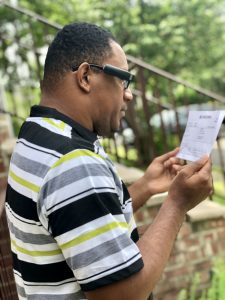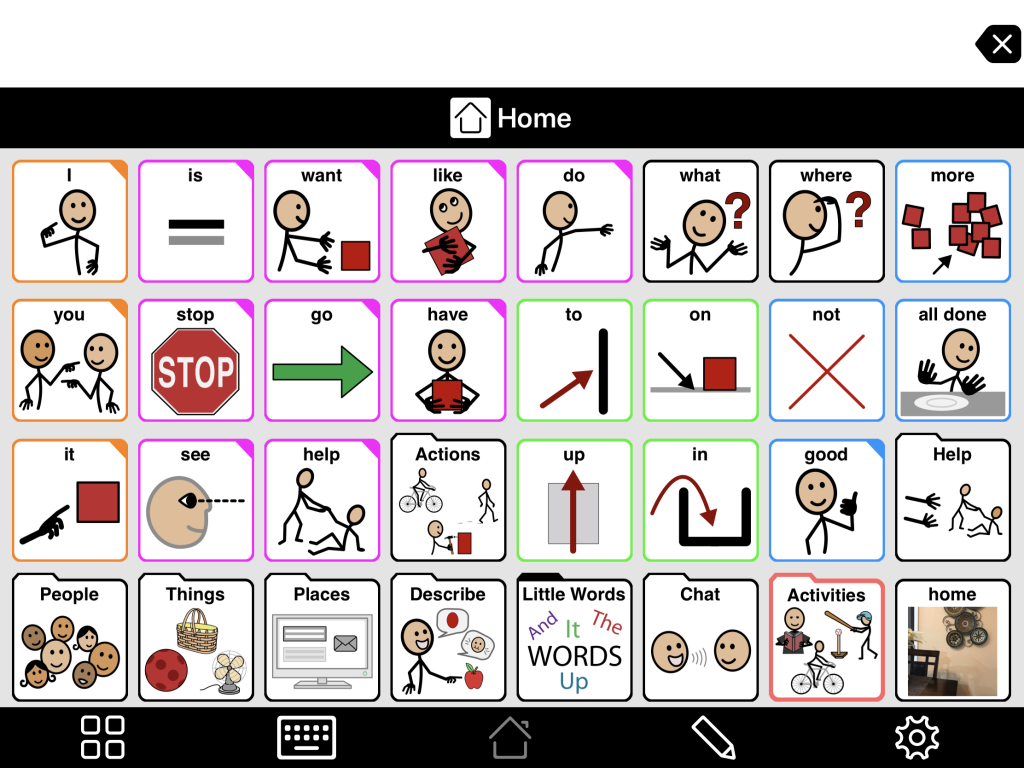[DISPLAY_ULTIMATE_PLUS]
 Assistive technology (AT) is moving the needle for communication for people with developmental disabilities.
Assistive technology (AT) is moving the needle for communication for people with developmental disabilities.
At school, students who are nonverbal or have limited speech are often loaned tablets equipped with communication augmentation apps such as Proloquo2Go. While the tech isn’t new, it is continually improved and embraced in schools and at home. Other examples of assistive tech students with disabilities might use include note-taking software or video magnifiers- it all depends on their needs.
“It’s been extremely busy,” said CAU Assistant Executive Director of Membership Services William Busch. Busch is a certified Assistive Technology Professional who can make recommendations for many AT options, for everything from wheelchair access to software, and purchase the tech with the individual’s budget. In a little over a year, 35 people have been assessed for and got AT with help from CAU.
After students graduate from high school programs, they usually return any tablets on loan and must make a decision. Do they want to use AT at home and in their adult lives?
Proloquo2Go and other programs are customizable for easy access to everyday communication commands.
“Imagine a student who has been using it for 7 years, how much adapting has been done in the application,” Busch said.
John, 22, had used a tablet at school for years and recently got his own with help from CAU.
“We want to find something he’s interested in,” for a supported volunteer or job opportunity, said his mom Lee. “John is going to need that augmentative communication device in various scenarios… We’ve got to see what the environment is calling for. The nice thing is the device is very user friendly.”
Lee understands her son’s limited speech and said she is interested to see how he will use the tablet to improve communication with new people.
“There is no doubt that early on, hearing the device speak helped him pronounce and understand the words better,” she added.
For now, John is attending a day habilitation program and looks forward to working with a new speech therapist, Lee said.
Kristie, 26, also recently purchased a tablet and uses the First Then app to structure her day.
“We program a daily schedule for Kristie to follow her routine,” said her mother Amal. “She likes to know her routine first – I use it also to help her choose her rewards.”
First Then allows users to create timed activities and customize using their own photos.
“Her language actually is very limited…sometimes she’ll use the picture exactly for what she needs,” Amal said.
Busch will meet with families to learn more about an individual’s needs and make sure everyone knows how to use and update any new tech. This year he assisted a Middlesex County Community College Student, Andre, who is blind, with an OrCam wearable device that reads aloud when he looks at pages, signs and more.
“I love learning about what tech is available and how it can serve people to allow them to be more independent,” Busch said.

